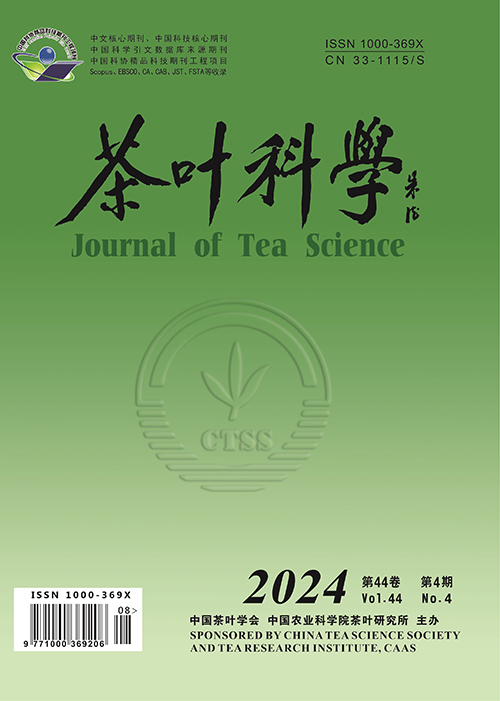Enhanced Acaricidal Activity of Senna auriculata and Ocimum tenuiflorum Extracts with the Addition of Adjuvant against Red Spider Mite, Oligonychus coffeae Nietner (Acarina: Tetranychidae) Infesting Tea
引用次数: 0
Abstract
Tea ( Camellia sinensis ) is one of the most consumed non-alcoholic beverages in the world and has been affected by many pests which damage its quality and production globally. In this paper an attempt has been made to evaluate the aqueous leaf extracts of Senna auriculata and Ocimum tenuiflorum with and without adjuvant for their effect on red spider mite (RSM), Oligonychus coffeae (Nietner) infesting tea. Resulting, Senna auriculata, leaf extracts with adjuvant caused 90 % (LC 50 :1.21 and LC 90 :2.33 %) mortality which was greater compared to Ocimum tenuiflorum whereas 73 % (LC 50 :1.40 and LC 90 :2.81 %) was observed at 5 % concentration after 24 h exposure and very lowest mortality percent were observed both extracts without adjuvant. Ocimum tenuiflorum leaf extracts with adjuvant (0.05 %) showed highest ovicidal activity and effective ovipositional deterrence compared with S. auriculata treatment. The evaluated plant extracts with adjuvant are effective for controlling RSM and it could be an alternative, easily accessible, and eco-friendly approach for control of mite infesting tea.添加佐剂增强木耳番泻叶和花竹提取物对茶叶红蜘蛛螨、咖啡少爪螨的杀螨活性
茶(Camellia sinensis)是世界上消费量最大的非酒精饮料之一,受到许多害虫的影响,影响其质量和全球产量。本文研究了木耳泻泻叶和竹叶泻泻叶的水提液在加和不加佐剂的情况下对茶叶中红蜘蛛螨、咖啡Oligonychus的防治效果。结果表明,加佐剂的木耳泻叶提取物在24 h后的死亡率为90% (lc50:1.21和lc90: 2.33%),高于浓度为5%时的木耳泻叶提取物的死亡率为73% (lc50:1.40和lc90: 2.81%),未加佐剂的木耳泻叶提取物的死亡率最低。与木耳草处理相比,加佐剂(0.05%)的芦竹叶提取物的杀卵活性和产卵抑制效果最高。所评价的植物提取物加佐剂对茶螨有较好的防治效果,是一种简便、环保的防治茶螨的新方法。
本文章由计算机程序翻译,如有差异,请以英文原文为准。
求助全文
约1分钟内获得全文
求助全文
来源期刊
CiteScore
1.50
自引率
0.00%
发文量
2558
期刊介绍:
The Journal of Tea Science was established in August 1964, approved by the Publicity Department, CCCPC. Its title was inscribed by Zhu De, the chairman of CCCPC. It was discontinued during the Cultural Revolution in 1966, and it was reissued in August 1984, approved by the State Scientific and Technological Commission.Academicians Chen Zongmao and Liu Zhonghuaof the Chinese Academy of Engineering served as the directors of the editorial board. The Journal of Tea Science is managed by the China Association for Science and Technology,sponsored by the China Tea Science Society and the Tea Research Institute of the Chinese Academy of Agricultural Sciences, and edited and published by the editorial office of the Journal of Tea Science. It is the only one of Chinese core journals in the field of tea science that is included in the core library of the Chinese Science Citation Database.Its Domestic Unified Serial Number is CN 33-1115/S, its International Standard Serial Number is ISSN 1000-369X and its International publication name code is CODEN-CHKEF4. At present, the Journal of Tea Science is a bimonthly publication, published in the middle of the month, with a book size of 16.

 求助内容:
求助内容: 应助结果提醒方式:
应助结果提醒方式:


